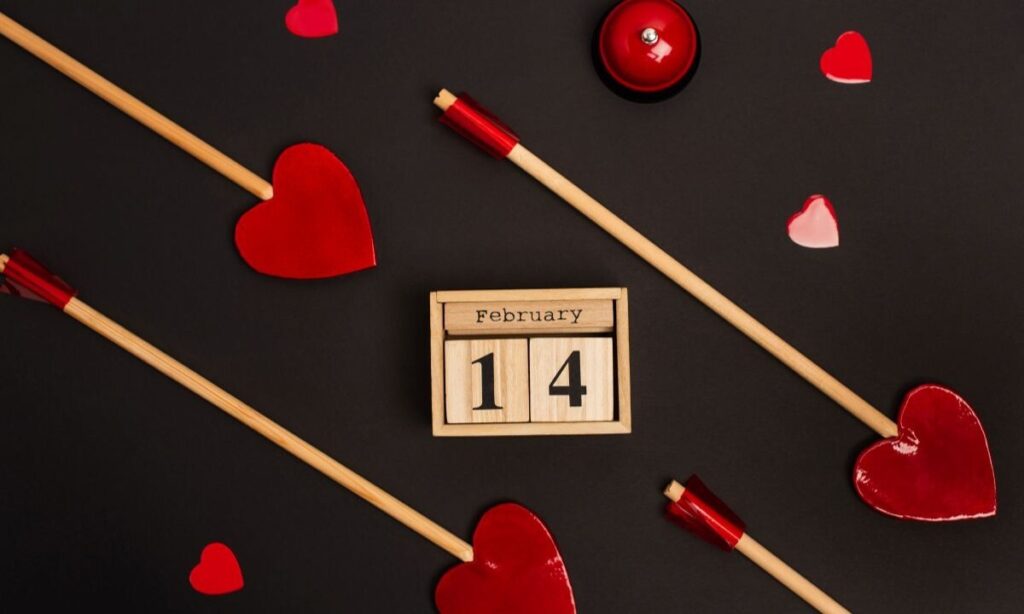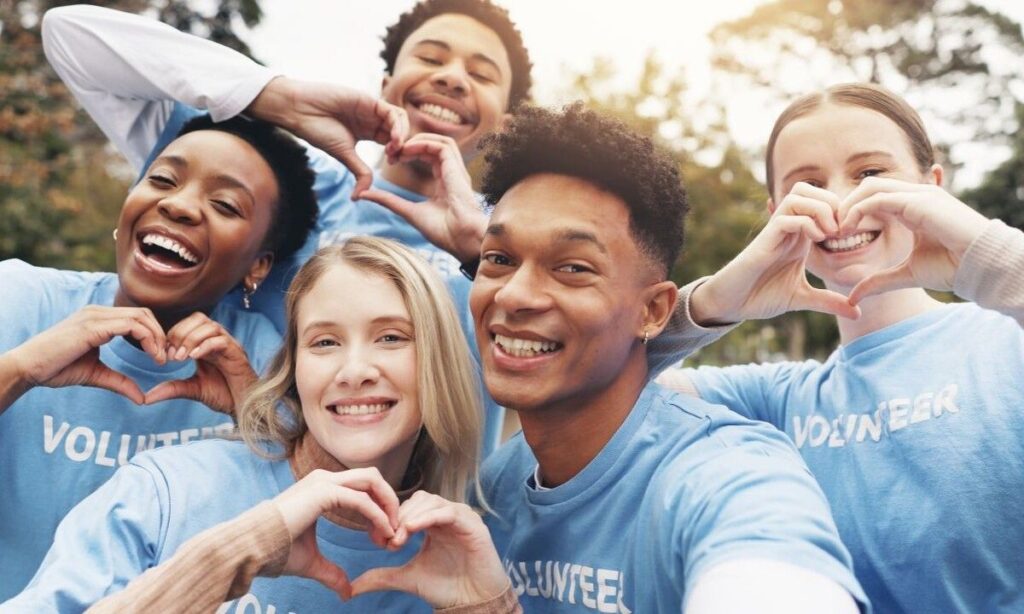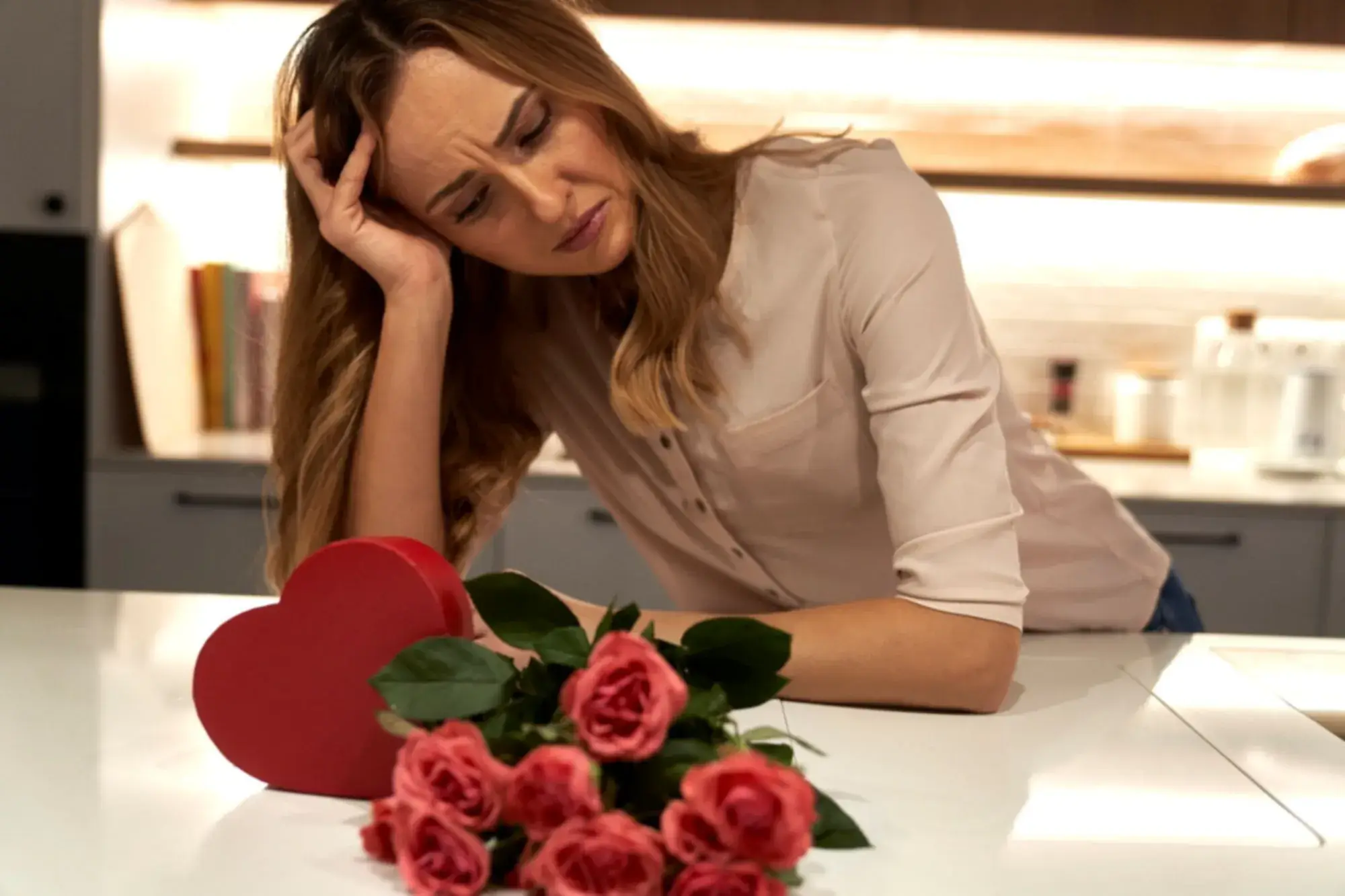Not everyone pictures roses and hearts when thinking about Valentine’s Day. About 15 million Americans said that their mental health worsens around this holiday, according to a BetterHelp 2023 survey. Clearly, if you face mental health challenges, February 14th can be anything but romantic. So, let’s look at what makes this day tick and how to handle the ‘Valentine’s Day Blues.’
What Is Valentine’s Day and Why Do We Celebrate It?

Every February 14th, stores fill up with heart-shaped everything! But the day of love hasn’t always been about chocolates and flowers.
This holiday began in ancient Rome with a festival called Lupercalia. This mid-February event honored the Roman god of agriculture and fertility, Lupercus. Later, it became a Christian celebration of Saint Valentine, a priest who defied Emperor Claudius II’s wishes and secretly married young soldiers until his death on February 14th. (The emperor thought single soldiers made better fighters, but Saint Valentine disagreed.)
Today, Valentine’s Day isn’t a religious holiday. While it’s still big on romantic love and happiness, it celebrates all kinds of relationships. People can express love and affection toward their loved ones and themselves.
The Impact of Valentine’s Day on Mental Health
Valentine’s Day can reinforce the idea of romantic relationships being the only source of true happiness. Cutesy couple photos on social media can also make anyone feel a bit down. If you have mental health struggles, this can bring feelings of loneliness, inadequacy, and worthlessness. Valentine’s Day can even trigger negative thoughts about forming healthy relationships.
Money stress doesn’t help, either. When many chatter about costly tokens of affection, it’s easy to feel pressured. Trying to plan a “perfect” day can become overwhelming for those dealing with obsessive-compulsive disorder or anxiety. Valentine’s Day expectations can also trigger symptoms such as panic attacks or compulsive behaviors.
If depression struggles or mood disorders are a daily challenge for you, the constant spew of romantic cheer can lead to very isolating feelings. On top of these, it can intensify existing symptoms and cause dangerous outcomes, like self-harm.
Ways to Enjoy Valentine’s Day With Mental Health Challenges

To make the day work in your favor, you can try these methods:
- Treat Yourself: Order your favorite takeout, immerse in a new book, or simply soak in a nice, hot bath.
- Reach Out to Your Loved Ones: Call that friend who can always make you chuckle or send some light-hearted memes to your close circle.
- Spread Kindness or Volunteer: Leave a joyful note for someone who might be lonely too, or participate in an outreach that means a lot to you.
- Host an Anti-Valentine’s Night: Movie night with friends or a virtual game night might be just what you need for a boost.
- Practice Mindfulness: Take a few deep breaths or try some meditation techniques to ease any stress.
Let your mind and body tell you what you need; it knows what’s best. Try not to be harsh on yourself because your mental health is more important than the spectacle of Valentine’s Day. With some thoughtful planning and self-care strategies, you can make the most of Valentine’s Day despite mental health challenges.
Identifying Potential Triggers During Valentine’s Day
It helps to know what might push your buttons on Valentine’s Day. Common triggers include a large number of social media posts about dates and romantic gifts and ads for couples’ experiences. Old memories can also pop up when you least expect them and worsen negative emotions.
Luckily, there are coping strategies you can try to manage these triggers:
- Take a social media break if you need to
- Plan something nice for yourself so there’s something positive to look forward to
- Hang out with people who won’t pressure you to feel a certain way
- Remind yourself that love comes in many forms that matter
Make the Most of It! Love Yourself and Others

Your feelings about Valentine’s Day are valid, whether they’re happy, sad, or some gray area in between. There’s nothing wrong with skipping the traditional Valentine’s stuff if it doesn’t gel with you. Focus on being kind to yourself—Your relationship status doesn’t define your worth.
If you do celebrate with others, be honest about what you can handle. The right people will understand and uplift you. If you need extra guidance, professional mental health support can also help you navigate any challenges. But don’t forget that this one day doesn’t have to be the only day you show love for yourself and others.




